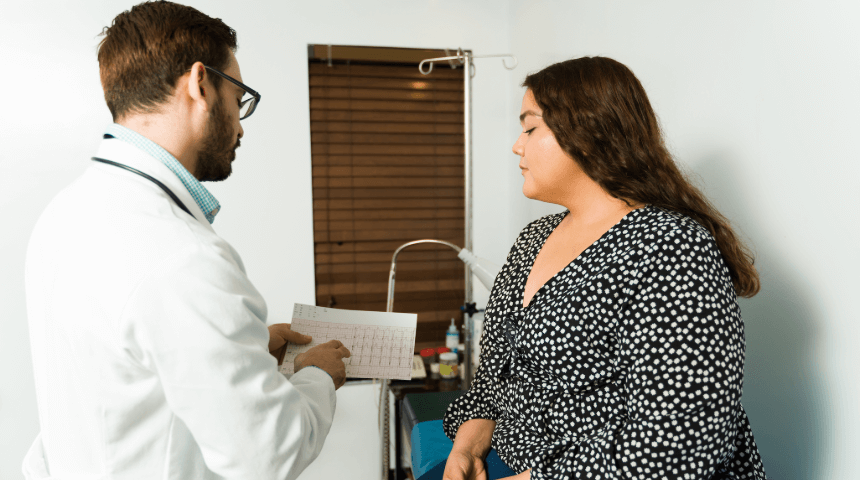When you think about weight loss surgery, you may envision the outward benefits, such as being able to shop for more clothes in a greater variety of stores. You may consider how losing weight may change your lifestyle, giving you more energy to play with your children or grandchildren in the park.
The Benefits of Losing Weight
But an essential component of weight loss surgery is the medical benefits you can gain by losing weight. If you have diabetes, high blood pressure, COPD or other chronic conditions, you may find your health improves significantly with the weight loss. Some people no longer have to take medication for diseases such as diabetes or high blood pressure.
While the surgery provides a jump start to improved health, the procedure is only at the beginning of the process. For long-term success, it is essential to understand what to expect next.
What to Eat After Surgery
Many patients go home the day after the surgery, usually in the afternoon, especially if they have had laparoscopic surgery. This timeframe can vary depending on the type of surgery, and if there are any complications. You’ll be instructed to take it easy, but to do some walking around to decrease the possibility of blood clots.
For the first three days after the surgery, you’ll have a clear liquid diet, which is easy to digest. Then, for two weeks, you will have a high-protein liquid diet, which also may include gelatin, yogurt and cottage cheese. For the next three to four weeks, you’ll have a soft diet of pureed foods. At that point, if all is going well, you’ll be able to begin a regular diet.
Learning what to eat after surgery can be challenging. Foods you used to like may not taste as good. Likewise, you may like foods you never have enjoyed before. Some items, such as carbonated drinks, will cause you stomach discomfort if you have them.
Behavior Changes After Surgery
Life is different after surgery — not just in what you eat, but why you eat. Many people turn to food for comfort: The stereotypical picture of a person eating ice cream after heartbreak is rooted in truth. Sugar and carbohydrates increase endorphins, the calming, “feel good” hormone. After weight loss surgery, you’ll need to identify other ways of addressing stress or other emotional situations than by eating.
As part of your bariatric program, nutritional and psychological counseling is usually available and recommended to help you through this transition.
Weight Loss Expectations
It’s normal to wonder how much weight you’ll lose through this surgery. It varies for each person and depends on your starting weight, age, medical condition and type of surgery.
It also depends on your commitment to the process. One of the predictors of success is how well you follow the pre-surgery diet. Before most weight loss surgeries are conducted, patients are required to follow a three- to six-month diet, which initiates the changes that will be continued post-surgery. Cutting out sugar and sodas, adding proteins, counting calories and making mindset changes about weight loss are good indicators of having success after surgery. Those who wait until after surgery to make these kinds of lifestyle changes don’t do as well.
Having realistic expectations about your weight loss is necessary for this journey. While you may not reach your lowest weight, you can reach and maintain a healthy weight. It helps to look at short-term goals. Target the amount of weight you’d like to lose in two months, for example. That will provide more focus than thinking about how much weight you want to lose in a year.
You may have struggled with your weight in the past, but by knowing what to expect after weight loss surgery, being committed in your efforts and having realistic expectations, you can increase the likelihood of losing weight and keeping it off.
Choose 2 Lose for A Healthier Life
For weight loss wins, choose life-changing care with the Orlando Health Weight Loss and Bariatric Surgery Institute. While we understand you may want to stay home, it’s important you don’t miss out on care that’ll help you live life to the fullest.
Learn More










